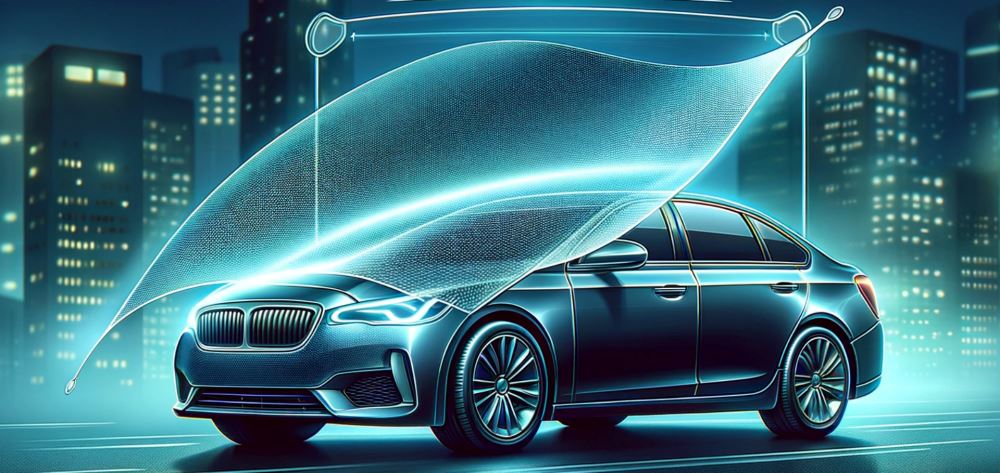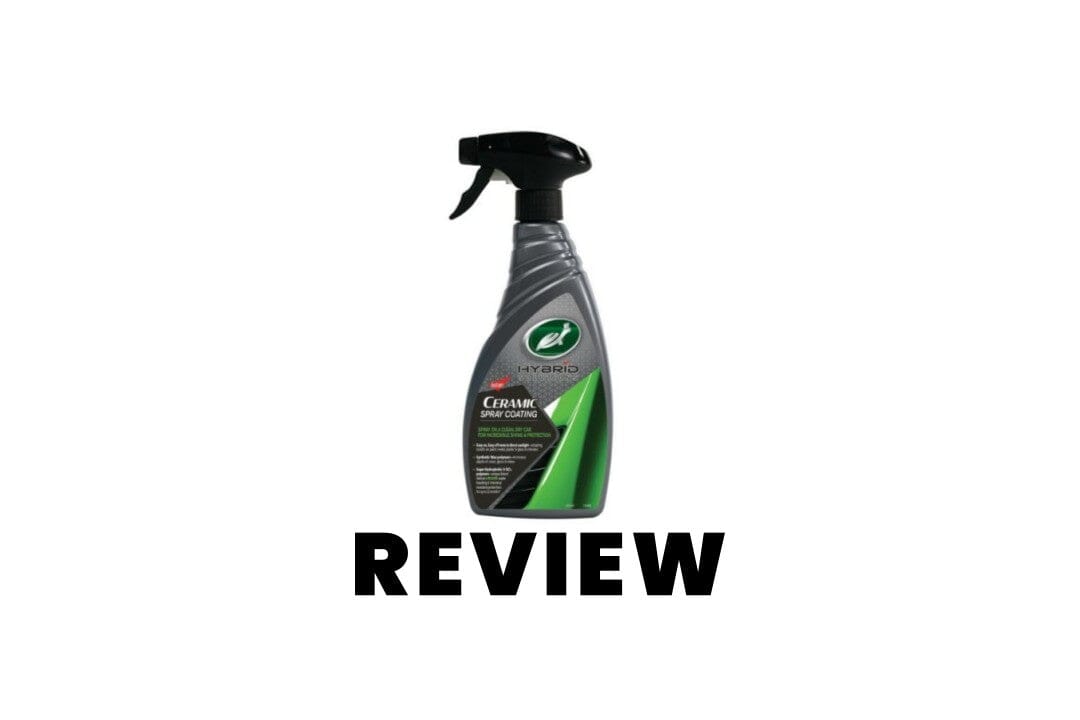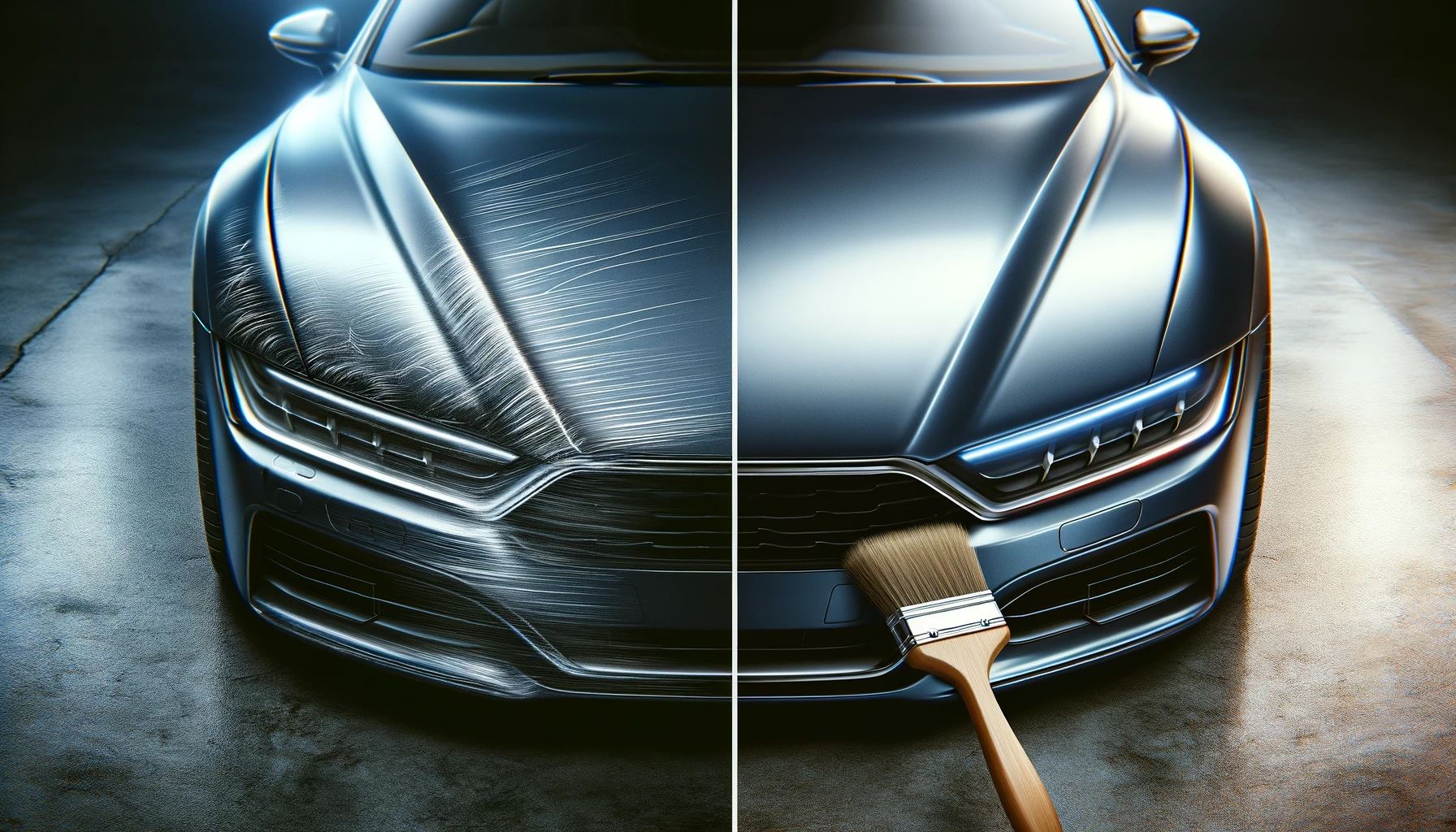If you’re like most drivers, you probably take pride in keeping your car looking clean and shiny. But even the best detailing efforts can be undone by rain or snow, which can cause streaks and smears on your windshield.
That’s where glass sealant products come in! In this article, we’ll discuss what glass sealant products are and why you should use them.

★★★★★
High Rated Reviews from 150+ Customers
After a simple spray and wipe down using a microfiber towel, your car’s paint job will be protected for up to an entire year. Your car’s top coat impenetrable to any chemical, liquid, or environmental contaminant there is. In a matter of minutes!
What is a Glass Sealant?

A glass sealant is composed of silicone gels that are used to form a lasting seal. The silicone is quite fluid so when it’s put on top of a window, it runs down and into the tiny holes and cracks that allow water to seep through.
This sealant is designed to fix cracks and crevices in surfaces such as windshields, side windows, sunroofs, and RV windows. If applied correctly, there should also be a proper bond between the glass and melted silicone with no remaining gaps.
Why Use a Glass Sealant?
There are several reasons why you might want to use a glass sealant. Let’s go through them.
Moisture Repellence
Glass sealants are commonly used to prevent moisture.
You’ve seen that a protected glass surface beads up beautifully and allows moisture (rain, sleet, or snow) to run off of it. As a result, your wiper blades don’t have to work as hard and you can keep your eyes on the road.
Quick and Easy Cleaning
A protected surface, such as paint or glass, is simpler to clean.
Because the substance cannot fully adhere to the glass itself because of the additional protection, bird droppings, and tree sap are considerably easier to remove with a base layer of coverage. It means less scrubbing, aggravation, and time in the garage.
Protection
Most scratching happens when contaminants are left on the surface for too long, but it can also be caused by dust while driving at high speeds. As glass sealants fills in cracks, it makes the surfaces stronger and more durable- leading to more protection from debris.
Types of Glass Sealants
Not all glass sealants are created equal. Here are a few different types of glass sealants that you might encounter:
Polysiloxane-Based Glass Sealant
This is the most common type of glass sealant. It’s easy to apply and forms a strong bond with the surface of your windshield. It works by filling in the tiny cracks and crevices in your windshield that allow water to seep through.
Pros: Easy to apply, forms a strong bond.
Cons: Not as durable as some other types of glass sealants
Silicone-Based Glass Sealant
Silicone-based glass sealants are more durable than polysiloxane-based sealants. They’re resistant to heat and UV light too.
Pros: More durable, resistant to heat and UV light
Cons: Can be more difficult to apply
Graphene-Based Glass Sealant
Graphene-based glass sealants are the newest type of glass sealant on the market. They’re made with graphene, a material that is stronger than steel and harder than diamonds. Graphene is also highly resistant to chemicals and UV light.
Pros: Stronger than other types of glass sealants, highly resistant to chemicals and UV light
Cons: Can be costly
★★★★★
High Rated Reviews from 150+ Customers
After a simple spray and wipe down using a microfiber towel, your car’s paint job will be protected for up to an entire year. Your car’s top coat impenetrable to any chemical, liquid, or environmental contaminant there is. In a matter of minutes!
Quickest Way To Seal Your Glass, Provide Protection, and Sheet Water Off Your Windshield When it Rains
If you are looking for a glass sealant, we recommend our latest and strongest coating Torque Detail Graphene Burst.
Graphene is highly resistant to chemicals and UV light, meaning it will protect your windshield from all types of elements. Designed with the entire exterior of the car in mind, Graphene Burst protects your windshield and paint, wheels, and trim.
It is also very easy to apply.
Step One: Wash Your Car

Wash your car thoroughly. You don’t want any dirt, dust, or grime on your paint when you apply Graphene Burst.
We recommend using Torque Detail Decon Wash to remove any bonded contaminants. Decon soap will also remove any wax or sealant on your paint so that Graphene Burst can bond properly.
Step Two: Thoroughly Dry Your Car
Once your car is clean, dry it thoroughly with a clean microfiber towel.
Double-check for any dirt or grime that may have been missed. Be sure to completely dry you car as water can interfere with how Graphene Burst bonds with the paint.
Step Three: Use a Clay Bar
Clay bar the vehicle to remove any bonded contaminants that washing may have missed.
Our Clay Decon Kit is perfect for this step. After layering, make sure to remove all the clay residue with a clean microfiber towel before moving to the next step.

Step Four: Apply Graphene Burst

Apply the Graphene.
Before you start, be sure to shake the can well. Then, holding it about six inches away from your car’s surface, apply an even layer in small sections. It is best to choose areas that are only a few square feet each for optimal control.
Step Five: Work it In
Work in the Graphene.
After you cover the area, use a microfiber towel with some of the Graphene Burst to work in the product. Try to work in small sections and move in a slow back-and-forth motion. This will ensure the Graphene adheres to the paint and no spot is left uncovered.
Step Six: Remove Excess
Remove any excess Graphene with a clean and dry microfiber towel. This will buff the paint and help the Graphene to cure evenly.
Step Seven: Let it Cure
For the graphene to set properly, allow it to dry for 6-12 hours in an area that is cool and has no moisture. Take care to keep your car clean during this time by avoiding dirt and debris. If at all possible, avoid driving your car during this time as well.
That’s all there is to it! You have now applied a layer of protection that will last for years to come.
★★★★★
High Rated Reviews from 150+ Customers
After a simple spray and wipe down using a microfiber towel, your car’s paint job will be protected for up to an entire year. Your car’s top coat impenetrable to any chemical, liquid, or environmental contaminant there is. In a matter of minutes!
Frequently Asked Questions (FAQ) About Glass Sealants
How Long Does a Glass Sealant Last?
Most glass sealants will last for six to twelve months. However, our graphene-based coating can last up to a year or more.
When Should I Reapply the Glass Sealant?
You should reapply glass sealant every six to twelve months or more frequently if you live in an area with a lot of road construction or dust. You might want to reapply glass sealant after washing your car if it rains heavily.
Are there Any Drawbacks to Using a Glass Sealant?
There are three main drawbacks to using sealant.
- It can make your windshield more difficult to see in the dark because the product creates a barrier between your windshield and the outside world.
- Glass sealants can be difficult to remove if you decide you no longer want them on your windshield.
- Glass sealants, while a great investment, can be expensive.
Will a Glass Sealant Protect My Windshield from Scratches?
A glass sealant will not prevent your windshield from being scratched. It will, though, make it more difficult for dirt, sand, and other debris to become embedded in the surface of your windshield.
Will a Glass Sealant Fill in Cracks and Stars?
A glass sealant will not fill in all cracks or stars. Instead, it creates will a barrier that will prevent water from seeping through these cracks and causing them to expand.
Will a Glass Sealant Protect my Windshield from UV rays?
Yes, a glass sealant will protect your windshield from UV rays. This is especially important if you live in an area with a lot of sun exposure to avoid UV ray damage on your windshield, dashboard, and upholstery.
Will a Glass Sealant Protect My Windshield from Snow and Ice?
Yes, a glass sealant will not only protect your windshield from snow and ice, but it will also make it easier to see in the winter. Since it causes your windshield to become hydrophobic, it will help repel a wide array of potential contaminants.
Protect Your Glass to Make it Last

Glass sealants are products you can use to protect your car from the elements. You can use them on any of your car’s windows along with your headlights and taillights as well.
A good glass sealant will also repel water and keep the windows looking clean and new. With Torque Detail’s Graphene Burst, you’ll get a graphene infused salent that makes your windshield stonger and more durable.









